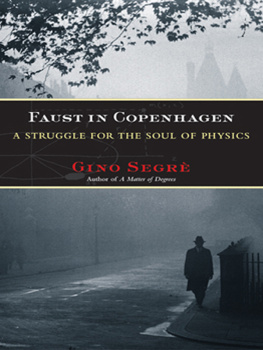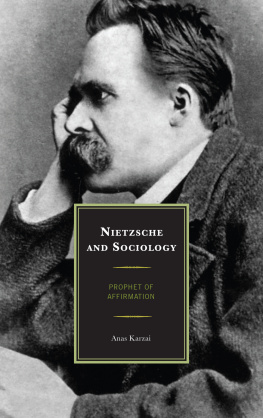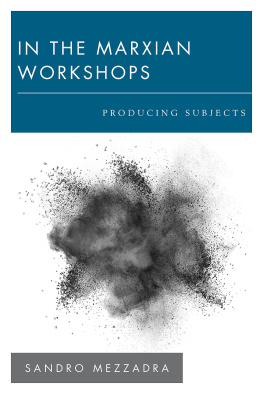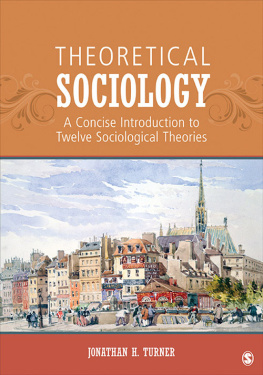First published 2014 by Ashgate Publishing
Published 2016 by Routledge
2 Park Square, Milton Park, Abingdon, Oxon OX14 4RN
711 Third Avenue, New York, NY 10017, USA
Routledge is an imprint of the Taylor & Francis Group, an informa business
Copyright 2014 Sandro Segre
Sandro Segre has asserted his right under the Copyright, Designs and Patents Act, 1988, to be identified as the author of this work.
All rights reserved. No part of this book may be reprinted or reproduced or utilised in any form or by any electronic, mechanical, or other means, now known or hereafter invented, including photocopying and recording, or in any information storage or retrieval system, without permission in writing from thepublishers.
Notice:
Product or corporate names may be trademarks or registered trademarks, and are used only for identification and explanation without intent to infringe.
British Library Cataloguing in Publication Data
A catalogue record for this book is available from the British Library
Library of Congress Cataloging-in-Publication Data
Segre, Sandro.
Contemporary sociological thinkers and theories / by Sandro Segre.
pages cm
Includes bibliographical references and index.
ISBN 978-0-7546-7181-7 (hardback) 1. Sociology--History. 2. Sociology. 3. Sociologists. I. Title.
HM447.S44 2015
301--dc23
2014015622
ISBN 9780754671817 (hbk)
ISBN 9781315573946 (ebk)
Foreword
This work aims to introduce to a public of scholars and doctoral students some authors and theoretical perspectives, which are apparently among the most influential on contemporary social theory. The definition of the concept of theory and social theory in particular is debatable, possibly because of its enormous diverse and multifaceted aspects (Calhoun et al. 2002: 19). Students of social theory have often stressed both similarities and differences between the conceptions of theory in the natural and the social sciences. The conception of theory and of social theory in particular, as will be here abided by, will accord with a conventional one. Theories, both in the social and the natural sciences, if conventionally defined aim to formulate systematic, abstract and general statements that are induced from empirical reality. All theoretical statements transcend the particular and the time bound and attempt to explain empirical events for the present times in abstract, non-evaluative and formal terms (Turner 1998: 2).
Theory, in this sense, purposes to be scientific in that statements aim at prediction and explanation of phenomena, and generating new research hypotheses (Ritzer 2000: 4). Emphasis has also been given here, as other authors have done, to the conflicting and incompatible views on its nature and presuppositions, which characterize social theory and sociology in particular (cf. Alexander 1982: 15; 1987: 121; Joas and Knbl 2009: 512; Baert and Carreira da Silva 2010: 1; Seidman 2013: 25). Social theory should have a wide range of applications to important social issues. This work, like other works on contemporary social theory, aims to convey essential information on prominent authors and theories, with an emphasis on general theories which may be applied, at least in principle, to several fields of inquiry. It differs from other works on the same subject in many ways, however.
The work, first of all, focuses on contemporary theory only, in keeping to its title. In this respect, it is unlike works on social theory that provide information also on the classical sociological tradition, as especially represented by Marx, Durkheim and Weber (see for example Baert and Carreira da Silva 2010; Seidman 2013). As a further difference, this work gives a conventional definition of social theory in this very foreword, but does not devote a chapter to this theme, as other authors have done (cf. Joas and Knbl 2009). It does not seek, moreover, to derive from theoretical principles, such as they may be found in past or contemporary sociological theorists, an abstract structure of sociological theory (see Turner 1982, 1998). It also makes no attempt to distinguish between micro and macro theoretical approaches, as this distinction has been variously interpreted, and has been found controversial (Collins 1988: ch. 11).
Given the present limitations of space and time, finally, this work does not deal with some directions, both old and new, of contemporary sociological theory. It does not deal, in particular, with Critical Theory, Cultural Studies, Expectations States Theory, Feminist Social Theory, Globalization, Theories of Consumption, and World System Analysis. Also, major contemporary authors such as Bauman and Elias have not been considered here, while the presentation of actor-network theory has been confined to a brief note at the end of the chapter on network theory. It is hoped that these lacunae will be remedied in the future. The work has been given a modular structure, to the effect that readers may choose those chapters and perspectives they find most proximate to their interests. Each chapter contains a rather detailed introduction to a perspective or author. The chapters are of different lengths, but there are no book-length chapters. All of them are divided in several sub-chapters according to the particular themes, in which a particular perspective or the thought of a given author are articulated.
Each chapter, furthermore, contains in its final part information on the current reception of that perspective or author. Any selection of the relevant contributions to social theory is inevitably affected by the authors orientations and preferences; still, an effort has been made keep to a presentation unbiased by pre-conceived ideological orientations. Several selection criteria of the secondary literature have been used, such as the reviewers scholarly reputation; the notoriety of their evaluation, whether positive or negative; and the extent to which they cover different aspects of a perspective or of the constitutive elements of an authors thought.
References
Alexander, J.C. 1982. Positivism, Presuppositions, and Current Controversies. Berkeley, CA: University of California Press.
Alexander, J.C. 1987. Twenty Lectures: Sociological Theory since World War II. New York: Columbia University Press.
Baert, P. and Carreira da Silva, F. 2010. Social Theory in the Twentieth Century and Beyond. Cambridge: Cambridge University Press.
Calhoun, C., Gerteis, J., Moody, J., Pfaff, S. and Virk, I. (eds) 2002. Contemporary Sociological Theory. Oxford: Blackwell.
Collins, R. 1988. Theoretical Sociology. New York: Harcourt Brace Jovanovich.
Joas, H. and Knbl, W. 2009. Social Theory: Twenty Introductory Lectures. Cambridge: Cambridge University Press.
Ritzer, G. 2000. Modern Sociological Theory. Boston, MA: McGraw-Hill.
Seidman, S. 2013. Contested Knowledge. Chichester: Wiley-Blackwell.
Turner, J. 1982. The Structure of Sociological Theory. Homewood, IL: The Dorsey Press.
Turner, J. 1998. The Structure of Sociological Theory. Belmont, CA: Wadsworth Publishing Company.











